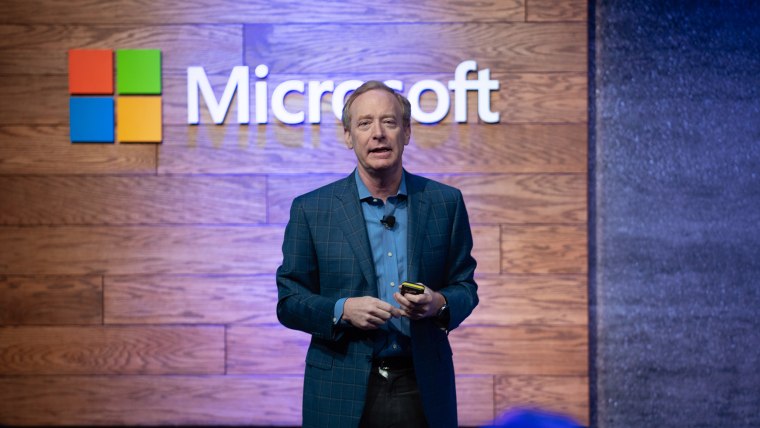Microsoft will not sell its facial recognition technology to police departments until there is a federal law regulating its use, the company’s president, Brad Smith, announced Thursday.
It follows similar decisions announced this week by IBM and Amazon amid protests across the United States against police violence and racial profiling.
“We will not sell facial recognition tech to police in the U.S. until there is a national law in place,” said Smith, speaking via video conference at a Washington Post event. “We must pursue a national law to govern facial recognition grounded in the protection of human rights.”
While there are benign applications for facial recognition, such as unlocking your smartphone, the technology is controversial because it can facilitate mass surveillance, exacerbate human bias in policing and infringe on people’s civil liberties. Because of this, privacy and civil liberties groups have spent years calling for strict controls or complete bans on the use of the technology.
Smith said Microsoft currently does not sell facial recognition technology to police in the United States. The company would not confirm whether it sold the technology to other government agencies, including Customs and Border Protection or the Department of Homeland Security.
“It should not have taken the police killings of George Floyd, Breonna Taylor, and far too many other black people, hundred of thousands of people taking to the streets, brutal law enforcement attacks against protesters and journalists, and the deployment of military-grade surveillance equipment on protests led by black activists for these companies to wake up to the everyday realities of police surveillance for black and brown communities,” said Matt Cagle, technology and civil liberties attorney with the American Civil Liberties Union of Northern California, in a statement.
More than 80 civil rights groups, led by the ACLU, called on Amazon, Google and Microsoft to stop selling facial recognition to the government in January 2019.
While Microsoft said it plans to wait until there is national legislation governing police use of the technology, the company has spent the first half of this year lobbying state governments to pass bills to permit the use of facial recognition by police.
In Washington state, the company backed a facial recognition bill this year that was signed into law that permits the use of the technology by police, so long as the agency holds public hearings and writes a report that details how the use of the technology will impact civil liberties. The bill’s main sponsor, state Sen. Joe Nguyen, is an employee at Microsoft.
The company also unsuccessfully pushed its facial recognition law this year in California, where it would have preempted multiple municipal ordinances in the Bay Area that ban police use of facial recognition. The bill failed to pass out of the Legislature after a coalition of civil rights groups organized opposition to it.
“No company-backed bill should be taken seriously unless the communities most impacted say it is the right solution,” said Cagle.

